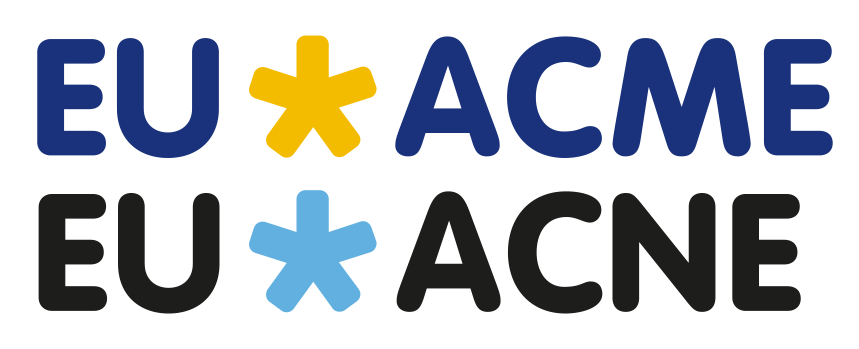Why Accredited CME/CNE?
The CME/CNE events awarded with the EU-ACME/CNE accreditation distinguish themselves from other educational events offered to medical professionals because their level of educational and scientific value is of the highest quality, thus supporting the best and most up-to-date patient care in urology.
Who can apply for accreditation?
Accreditation of CME/CNE programmes presented by professional health educational organisations can also be assessed on an individual basis.
Other organisers wishing to be eligible for accreditation – whether they are individual urologists or groups and whether they operate independently or in conjunction with commercial organisations – need to liaise with or be part of one of the organisations mentioned above in order to qualify for accreditation.
Such application must be supported by an appropriate medical professional who will take responsibility for the application. This person must be registered with his/her National Regulatory Authority.
Events, where the content, format or faculty is influenced by industry, will not be considered for accreditation.
Accreditation Requirements – Live Events/E-Learning
To be accepted as the CME/CNE event, an event must meet requirements as CME/CNE:
- Clearly states educational and scientific objectives;
- Fulfil a recognised professional need in the field, as defined in the statement of objectives;
- Present subject matter that attains the stated objectives;
- Make use of current teaching and learning techniques;
- Indicate selection criteria for presenters;
- Be free of commercial bias;
- Award certificates of attendance and/or course completion
- Be national and/or organised in a country where there is no CME/CNE system at all and no accreditation institution/committee.
Consensus Statement for Independence and Funding of Continuing Medical Education(CME)/Continuing Professional Development (CPD)
Members of the EU-ACME committee endorsed Consensus Statement for Independence and Funding of CME_CPD
Complementary Requirements
The EU-ACME expects the CME/CME provider to:
- Include in brochures and/or promotional materials information on:
– the learning objectives,
– the targeted audience,
– any possible or disclosed conflicts of interest
– and sources of commercial support. - Prepare the programme of the event in such a way that any possible accompanying satellite sessions and/or commercially sponsored (social) events do not interfere, nor compete with, the accredited CME/ACNE event.
Information that satellite symposia (if any) are excluded from the EU-ACME/ACNE accreditation needs to be placed in the programme. - Publicly announce or indicate before the programme, the existence of any financial interest or other relationship, a faculty member, or a CME/CNE provider has with the sponsoring company or any commercial products discussed during the CME/CNE course.
- Organise daily an attendance control and clearly communicate to participants how attendance control is organized. Participants should at least once a day sign a list of participants or scan the EU-ACME/ACNE membership card.
- Deliver at the end of the programme an Attendance Certificate to participants.
Those certificates should contain the standard EU-ACME/ACNE accreditation statement and indicate the number of CME credits that the participant earned during the activity. - Distribute among the audience Evaluation Forms, which participants should be urged to complete.
- The existence of any financial interest or other relationship, a faculty member, or a CME/ACNE provider has with the sponsoring company or any commercial products discussed during the CME/ACNE course, must be publicly announced or indicated before the programme.
- Complete and send the EU-ACME/ACNE Event Report to the EU-ACME/ACNE office.
- Send signed list of attendance and/or scanners to the EU-ACME/ACNE office.
